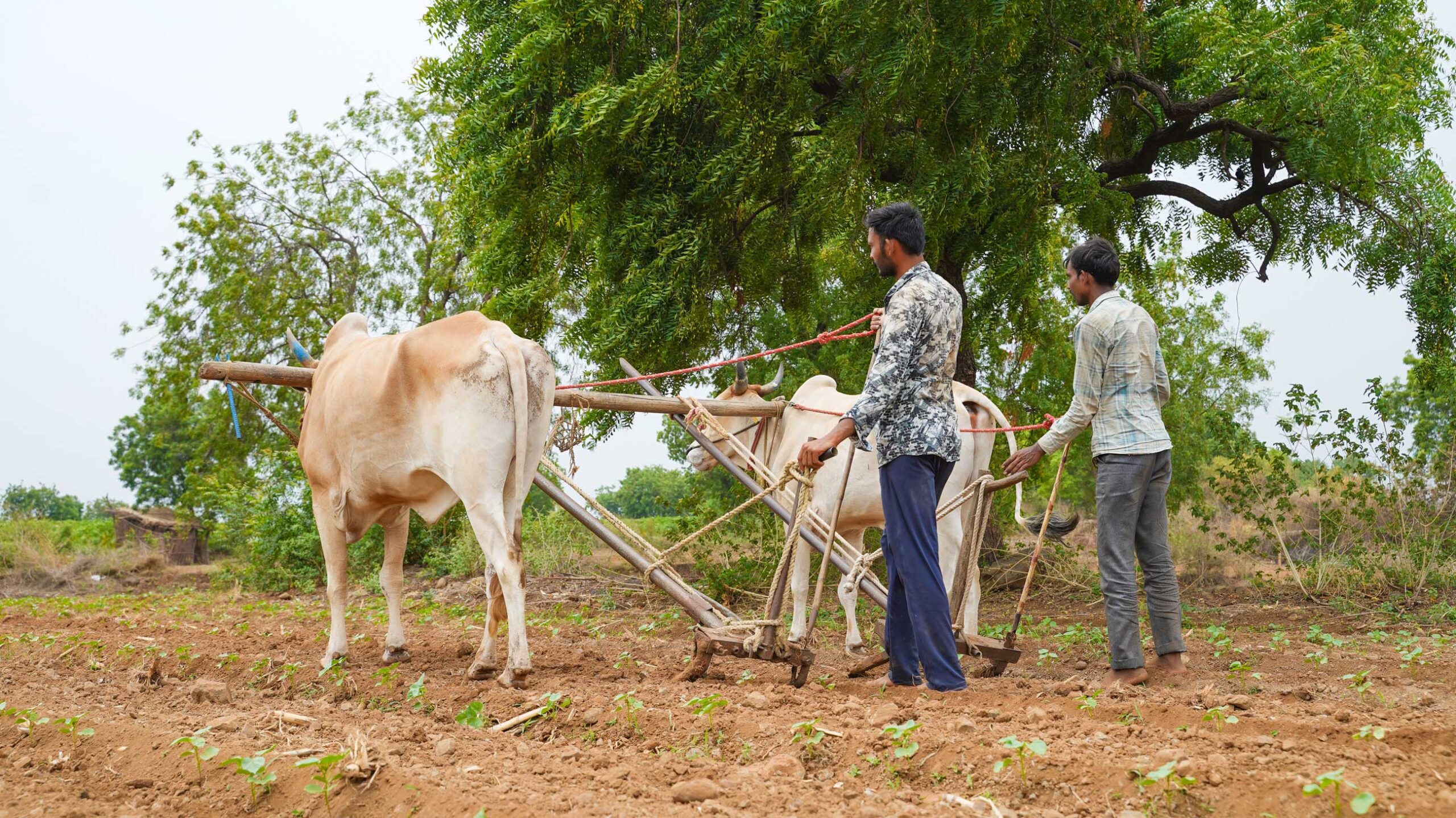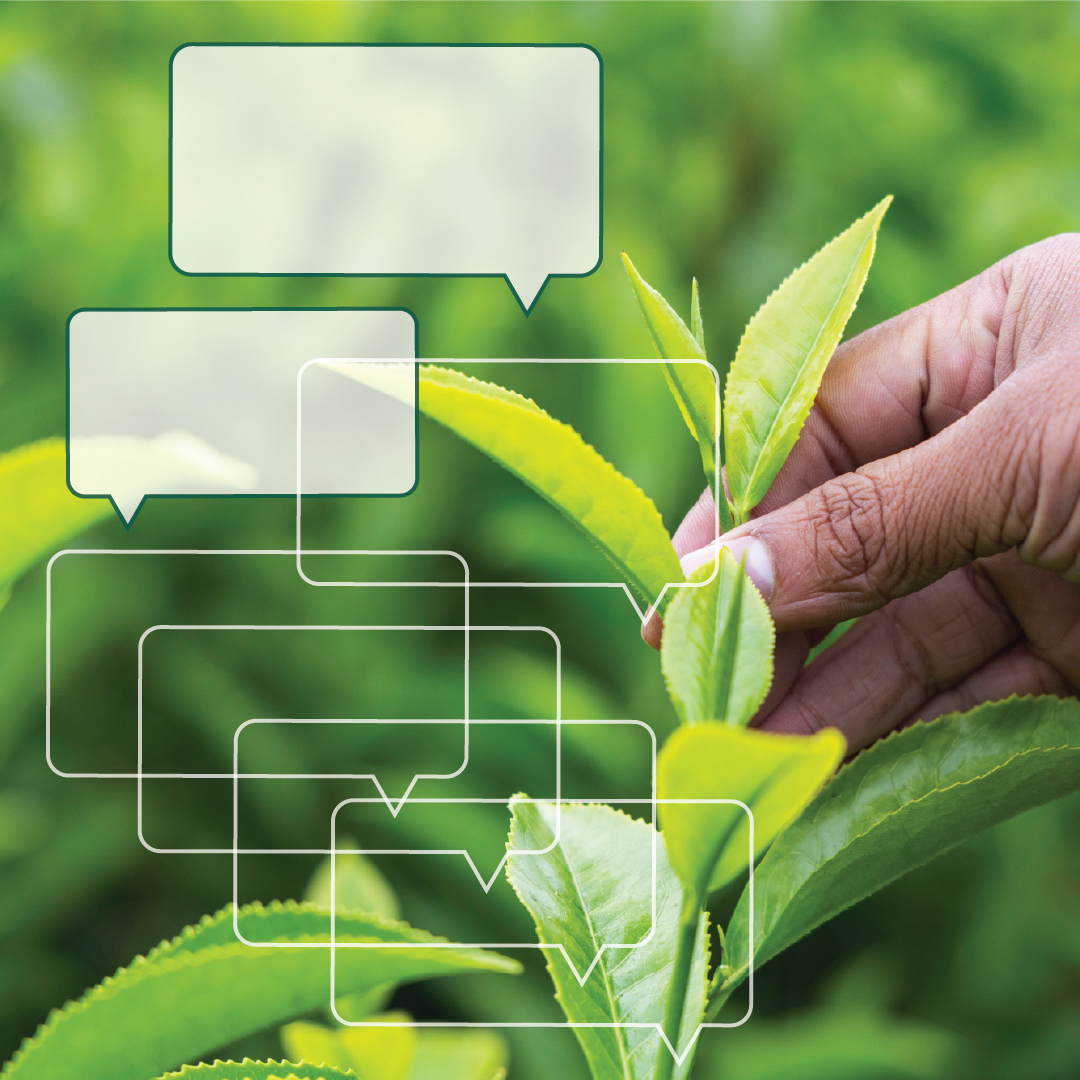Project Management Unit (PMU) – India
In December 2023, Precision Development (PxD) partnered with India’s Ministry of Agriculture and Farmers’ Welfare (MoA&FW), with support from the Gates Foundation (GF), to establish a Project Management Unit (PMU) embedded within the Ministry. The PMU plays a key role in assessing and scaling innovative, technology-driven solutions to improve service delivery for farmers across India.
Our work within the PMU focuses on digital agriculture transformation, policy support, and technological innovation. We are dedicated to developing scalable solutions that promote growth and enhance governance in the agricultural sector. Through this partnership, PxD ensures alignment with government priorities while building capacity and supporting evidence-based decision-making.

India
Gates Foundation
Our Mandate at the MoA
The core mission of the PMU is to lead the digital transformation of agriculture in India by providing expert guidance, policy support, and strategic advice to the Ministry of Agriculture and Farmers’ Welfare (MoA&FW) and identifying ways to diffuse key learnings across the state-to-centre pipeline.
With a focus on fostering innovation and promoting evidence-based decision-making, the team works closely with the Ministry to build sustainable systems that improve agricultural services for farmers, institutionalize processes to ensure service longevity, and support the integration of AI-driven solutions that can positively impact smallholder farmers across the country.
Our approach is built around the following pillars:
- Policy Support: Building the systems and processes to facilitate streamlined decision-making. This includes an ongoing ‘AI cell’ meeting at MoA which acts as a central hub for strategic planning related to AI-driven initiatives. We also facilitate inter-ministerial collaboration (eg: with MeitY), and integration with state government systems to optimize resource use.
- Feedback & Monitoring: Developing feedback loops and monitoring systems to ensure solutions are farmer-centered and effective. This includes leveraging existing farmer-extension systems like the Kisan Call Centre (KCC) to provide rapid feedback and institutionalizing more robust assessment frameworks in the medium term to support decision-making.
- Scaling: Identifying and addressing challenges in scaling key solutions. This includes supporting rollout, developing sustainability plans, and providing product management support across solutions in collaboration with various partners. Solutions supported include a national pest surveillance system, a scheme-based chatbot (Kisan e-Mitra), internal tools to improve the effectiveness of call center agents, and the delivery of novel weather forecasts to millions of farmers.
- Driving DPI Adoption: Building a toolkit on government adoption of DPI. This includes working with MoA to identify opportunities for public-private collaboration (e.g., connecting MoA to hyperscalers), designing use cases, facilitating center-state collaboration, supporting compliance and facilitating knowledge sharing.
The AI Cell, established by the Ministry of Agriculture and run by the PMU, is tasked with designing, implementing, and coordinating AI-driven initiatives to enhance farmer service delivery. It acts as the central hub for strategic planning and stakeholder engagement in the digital agriculture and AI space. The AI Cell’s goal is to help the Ministry harness AI technologies to streamline agricultural services and foster innovation.
A key function of the PMU is to facilitate collaboration with various stakeholders within the AI and digital space, including working with the Ministry of Electronics and Information Technology (MeitY) and Center of Excellence (CoE) in AI to support the roll-out of the IndiaAI mission.
Key AI-Driven Initiatives
The India PMU oversees several AI-powered initiatives in collaboration with top organizations and government bodies:
- Kisan e-Mitra: A chatbot designed to provide farmers with real-time information about government schemes and payment-related queries. With support from PxD, the Ministry of Agriculture & Farmers Welfare (MoA&FW) has enhanced this platform to include more schemes and local language options, and expanded its reach to over 5 million farmers in 2024. Partners like Wadhwani AI, EkStep Foundation, and Samagra Governance have played key roles in developing and scaling the chatbot.
- National Pest Surveillance System (NPSS): A joint initiative with Wadhwani AI, NCIPM, and other partners that uses AI-driven analysis to detect and manage pest outbreaks. This system ensures timely interventions to protect crops.
- Krishi Saathi: A comprehensive chatbot that leverages AI to deliver accurate, timely information to farmers via Farmer Tele Advisors manning the country’s 18 Kisan Call Centres.
Building Farmer Feedback Loops
As part of our work to strengthen feedback and monitoring systems, the PMU also enhances the outbound capabilities of India’s Kisan Call Centres (KCCs), which play a crucial role in delivering timely, localised agricultural advice to farmers. While traditionally focused on inbound queries, KCCs allocate 30% of Farm Tele-Adviser (FTA) time for outbound calling—a channel with immense potential for proactive farmer engagement.
Our outbound optimisation initiative aims to transform this channel into a strategic tool for gathering farmer feedback, supporting scheme implementation, and enabling systematic data collection. PxD is supporting enhancements in five key areas: digitizing data collection, improving call targeting, enabling region-specific analysis, streamlining monitoring processes, and strengthening state-centre coordination.
As part of this initiative, we’re also integrating outbound calls into broader research efforts, such as a scoping study to support the National Pest Surveillance System (NPSS), to gather insights on pest management practices and tool usability. Additionally, we’re supporting the generation of structured state-level feedback to inform scalable agricultural solutions.
Through this work, we aim to strengthen KCCs as a more responsive, data-driven, and farmer-centric system for agricultural extension across India.
Related blog posts
Make an Impact Today


